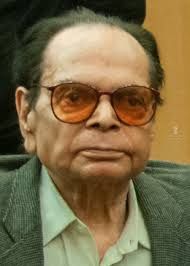"Neel Ki Do Katrein" by Rajendra Yadav: A Tale of Idealism, Struggle, and the Dilemmas of Modernity

Rajendra Yadav, one of the pioneers of Hindi literature, is celebrated for his socially conscious narratives and his ability to bring forth the complexities of human relationships and societal structures. His novel Neel Ki Do Katrein (Two Drops of Indigo) is an introspective and thought-provoking work that highlights the conflicting ideals of socialism, personal freedom, and the reality of socio-political change in post-independence India.
This novel, while addressing larger societal issues, delves deep into the inner turmoil of its characters as they grapple with their ideals, ambitions, and the ever-changing dynamics of the world they inhabit.
A Plot Steeped in Conflict and Realism
The title Neel Ki Do Katrein metaphorically signifies the choices, compromises, and dilemmas individuals face while navigating the currents of life. The novel revolves around its central characters, who represent the ideals and disillusionments of post-independence youth in India.
Set against the backdrop of the socialist movement in India, the narrative intertwines personal and political conflicts. Yadav brilliantly portrays the struggles of individuals who are torn between their ideological commitments and the harsh realities of societal constraints. The indigo—a recurring symbol in the novel—becomes a metaphor for purity, idealism, and the fleeting nature of dreams.
Key Themes of the Novel
The Dilemmas of Idealism vs. Realism:
The novel portrays the lives of young individuals who start with lofty ideals of societal transformation but are slowly confronted by the pragmatism of real life. Through these characters, Yadav questions whether it is possible to remain steadfast to one’s ideals in a world dominated by corruption, inequality, and compromise.
The Post-Independence Disillusionment:
The backdrop of the novel reflects a nation grappling with the aftermath of independence. The initial euphoria of freedom gives way to disillusionment as people struggle with poverty, unemployment, and systemic inequalities. Yadav critiques the gap between the ideals of socialism and the harsh realities of its implementation.
Human Relationships in the Modern World:
Rajendra Yadav is known for his incisive portrayal of relationships, and Neel Ki Do Katrein is no exception. The novel examines the personal struggles of its characters—their romantic entanglements, betrayals, and search for meaning in relationships—highlighting the fragile nature of human connections.
Women’s Agency and Identity:
A notable aspect of the novel is Yadav’s nuanced depiction of female characters. These women are not passive figures but are deeply involved in the socio-political landscape. They challenge traditional gender roles and assert their independence, making the novel a commentary on the evolving role of women in modern India.
The Author’s Perspective
Rajendra Yadav’s writing reflects his deep understanding of human psychology and his dissatisfaction with societal norms. He was a staunch advocate of progressive thought, and his works often serve as a critique of the status quo.
In Neel Ki Do Katrein, Yadav lays bare the inner conflicts of individuals as they struggle to reconcile their dreams with the demands of reality. Through his characters, he questions the relevance of rigid ideologies in a rapidly changing world and emphasizes the need for adaptability and introspection.
Why You Should Read “Neel Ki Do Katrein”
A Thought-Provoking Narrative:
The novel challenges readers to reflect on their own ideals and the compromises they make in life. It serves as a reminder of the importance of questioning societal norms and seeking personal growth.
Insight into Post-Independence India:
For readers interested in the socio-political climate of India during the mid-20th century, Neel Ki Do Katrein provides a rich and layered account of the era’s struggles and transformations.
Rich Characterization:
Rajendra Yadav’s characters are multi-dimensional, representing various facets of society. Their complexities make them relatable and engaging, drawing readers into their world.
A Blend of Personal and Political:
The novel seamlessly weaves personal stories with larger societal issues, creating a narrative that is both intimate and universal.
A Literary Masterpiece:
Yadav’s writing is known for its emotional depth, sharp commentary, and poetic symbolism. Neel Ki Do Katrein is a testament to his literary prowess and continues to be relevant in today’s context.
Neel Ki Do Katrein is more than just a novel; it is a journey into the heart of human aspirations, failures, and the search for meaning in a world fraught with contradictions. Rajendra Yadav uses this narrative to question societal structures, challenge traditional ideologies, and explore the fragility of human relationships.
For readers who enjoy introspective and socially conscious literature, Neel Ki Do Katrein is a must-read. It not only offers a glimpse into the struggles of a bygone era but also resonates with the universal challenges of modern life. Rajendra Yadav’s timeless work continues to inspire and provoke thought, making it an enduring piece of Hindi literature.